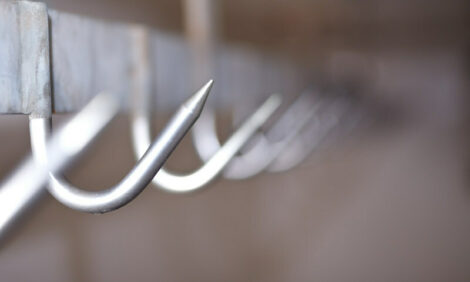



EU debates COVID-19 stimulus strategy
European Union leaders began the process of approving sweeping stimulus packages for European countries that have been hammered by the coronavirus.Reuters reports that EU leaders are aware that help is needed urgently – however, the bloc remains divided over the final size and terms of the stimulus programmes.
The 27 national heads started a video conference at 0800 GMT on 19 June to discuss recovery for the bloc that has lost over 100,000 lives to COVID-19 and faces an unprecedented economic downturn threatening its stability and global standing.
"It's a crisis without precedent that has had an enormous impact - economic, social and also on the viability of the EU," said a senior EU diplomat. "To show that Europe protects, we cannot take any longer on this, as delays will only make things more difficult and more expensive."
EU nations are discussing the bloc’s €1.1 trillion budget for 2021-27 as well as a proposed recovery fund of €750 billion borrowed by the EU Commission.
"Together ... this is a huge stimulus of 1,850 billion euros. It does not only help the economies of the countries which were hit hardest by the virus. It also helps the countries whose economies have been hit hard indirectly because of the lockdowns," Commission head Ursula von der Leyen said.


The aid is to be disbursed mainly among worst-hit nations, like Italy and Spain, but many differences must still be settled before the necessary unanimous agreement. Officials and diplomats expect a deal could come in July.
"We have a collective responsibility to deliver," the leaders' chairman Charles Michel said.
The proposed aid is exposing recurring rifts within the bloc, highlighting the disparities between northern EU nations and their southern counterparts.
Southern EU countries were already highly indebted before the coronavirus crisis. Those countries are calling for economic grants that don’t carry steep conditions. Conversely, more frugal northern countries want only conditional loans.
"Conditionality is a big issue. An agreement on reforms could create room for manoeuvre on grants," one diplomat said.
Sweden, Denmark Austria and the Netherlands, the so-called "frugal four", also believe the proposed recovery fund is too big and allocation of the money is not sufficiently linked to the pandemic.
Eastern EU countries say too much money will go to the south and want to maintain an earlier spending focus on agriculture and closing development gaps with the richer west.
Wealthy net payers to EU coffers, including the frugal four and Germany, want to retain past rebates on their contributions that others want scrapped and there is no agreement on how to eventually repay the Commission borrowing.
Officials expect EU leaders will need at least one or two more meetings in person next month to reach a final deal, which would also mark a step towards more integration in the bloc after the damaging setback of Brexit.









